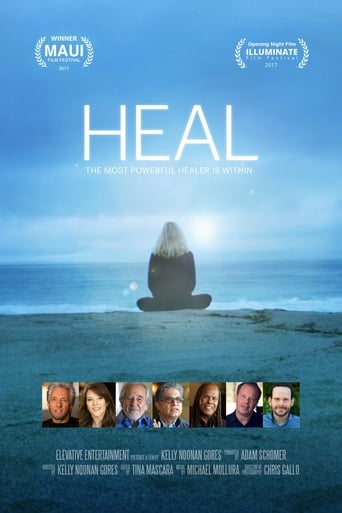
20 Oct 2017

Heal
A documentary film that takes us on a scientific and spiritual journey where we discover that by changing one's perceptions, the human body can heal itself from any disease.
The life and legacy of Hazrat Inayat Khan
The Way of the Heart is the story of a spiritual master who brought the wisdom of Sufism to the West in 1910. Today the message of love, harmony, and beauty that Hazrat Inayat Khan gave to a troubled world is more urgently needed than ever. Award-winning filmmaker Mischa Scorer weaves a tapestry of music, sound, and compelling images together with the testimony of many contemporary Western Sufis to evoke the magical atmosphere of a consummate mystic.
Self - Nephew
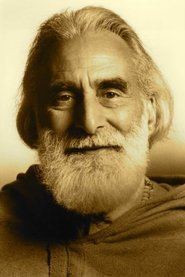
Self (archive footage)

Hazrat Inayat Khan (voice)

20 Oct 2017

A documentary film that takes us on a scientific and spiritual journey where we discover that by changing one's perceptions, the human body can heal itself from any disease.
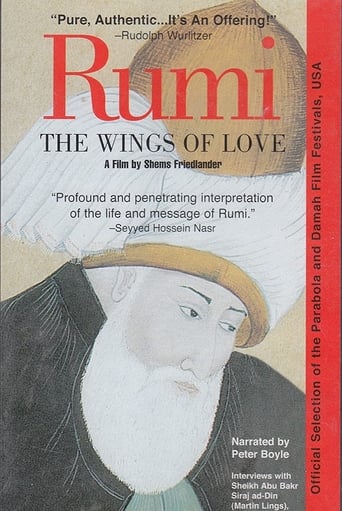
11 Jul 2005

Creened in several international film festivals, as well as the Musée de L’Homme in Paris, this film takes viewers into a secret world rarely seen by outsiders. Nearly eight centuries after his death, Mevlana Jalaluddin Rumi, Sufi master and mystical poet, is ever-present in the whirling ceremony of today’s Mevlevi dervishes. The Halveti zikr, Mevlevi semas, and the Gharib, or secret, sema-not seen for over 100 years-were filmed in Cairo, Istanbul, and the Garden of Rumi in Konya. This unique footage set to Mevlevi music is enhanced by interviews with Sheikh Abu Bakr Siraj ad-Din (Martin Lings), Islamic philosopher and author Seyyed Hossein Nasr, and Sheikh Omer Tugrel Inancer, who reveals the hidden meaning of the reed flute.
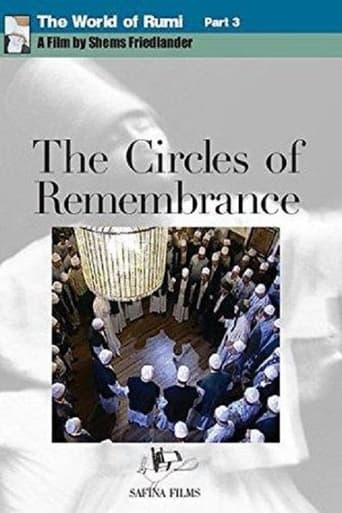
15 Nov 2008

The Circles of Remembrance is an 82 minute journey into what is usually a hidden world of Sufism. This documentary explores "zikr" ceremonies in Cairo, Istanbul, Morocco, and the U.S., along with interviews with some of the most prominent Sufi scholars and musicians, on the outer and secret meaning of the remembrance of God. Martin Lings, Seyyed Hossein Nasr, Gai Eaton, Sheikh Ali Gomma, T.J. Winter,and Tosun Bayrak are among those interviewed.

01 Mar 2011

This exclusive documentary follows the journey of some of the worlds leading Muslim thinkers in a gathering that took place at the heart of an ancient Islamic city It was Habib Umar's first trip to the Maghreb and the film captures his travels and responses as he journeys through a land brimming with spirituality, knowledge and vast history. From the serene courtyards of the University of Qarawiyyin to busling souk streets, from walled city of Fez to the mountainous sanctuary of Moulay Idris, the film shares the spiritual secrets of the places and their stories. The beauty of the great city of Fez, founded by descendants of the Noble Prophet (May Allah swt shower blessings upon him), is shared by a visitor who is himself a direct descendant of that great household. The result is a moving meeting of two traditions that form the very core of great Islamic narrative.
09 Apr 2006
The Sufi and the Scientist is the collective story of Sufi healer Sayyid Arif Hussain, the medieval Sufi Sheikh Haji Ali, and Dr. Thornton Streeter, a scientist working in the realm of human consciousness.
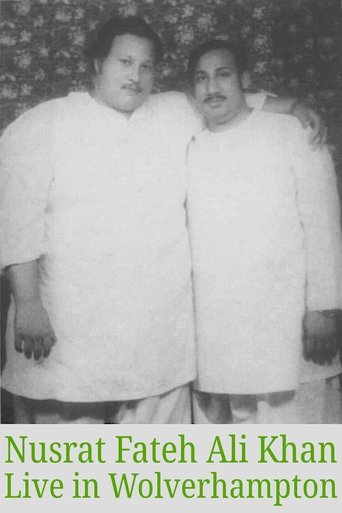
25 Oct 1983

Taken from DVD Volume 9, this documentary features the legendary Ustad Nusrat Fateh Ali Khan live in concert during his 1985 UK tour. Recorded at Wolverhampton’s Wulfrun Civic Hall on October 25, 1983, the film captures his mesmerizing performance. Known as the "Shahenshah of Qawwali," Nusrat revolutionized the Sufi devotional music tradition with his powerful vocals, intricate improvisations, and deep spiritual expression. Originally produced by Oriental Star Agencies Ltd. in 2004.
21 Nov 1973
This documentary explores the growing American interest in the 1970s in Eastern religions and philosophy. The teachings and lifestyles of ten spiritual teachers and their followers are presented without voice-over narration.
11 Nov 1971
This VHS video includes two short documentaries by Elda Hartley. In the first, THE ART OF MEDITATION, Alan Watts gives us techniques and advice for meditating. Elda Hartley herself narrates the second film, MEDITATION: THE JOURNEY INWARD, which exposes viewers to different cultural approaches to meditation. Hartley then discusses how meditation enriches one's life, and what it can reveal to us.
01 Jan 1999
In this fascinating and unusual conversation, writer and physician Deepak Chopra talks to religion professor Robert Thurman about the connections and differences between two of India's most important philosophical beliefs: Vedanta and Buddhism. Chopra explores the foundation of Vedanta, while Thurman -- the father of actress Uma Thurman -- provides the Buddhist point of view in this meeting held in 1999 at New York City's Tibet House.
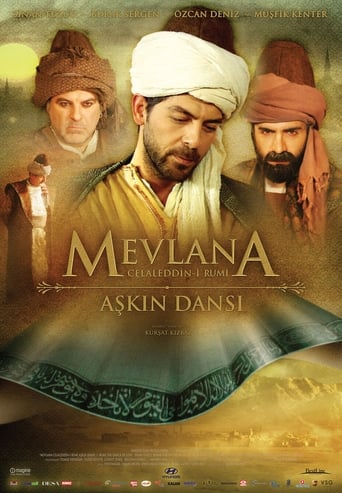
25 Apr 2008

A dramatised documentary about the life of Rumi, a Persian mystical poet whose images of universal love and divine mystery continue to be celebrated more than 700 years after his death.
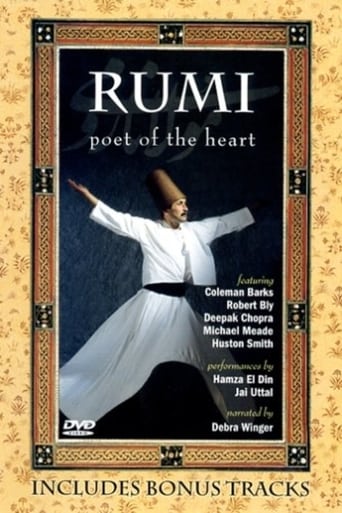
01 Jan 1998

In 1244, Jelaluddin Rumi, a Sufi scholar in Konya, Turkey, met an itinerant dervish, Shams of Tabriz. A powerful friendship ensued. When Shams died, the grieving Rumi gripped a pole in his garden, and turning round it, began reciting imagistic poetry about inner life and love of God. After Rumi's death, his son founded the Mevlevi Sufi order, the whirling dervishes. Lovers of Rumi's poems comment on their power and meaning, including religious historian Huston Smith, writer Simone Fattal, poet Robery Bly, and Coleman Barks, who reworks literal translations of Rumi into poetic English. Musicians accompany Barks and Bly as they recite their versions of several of Rumi's ecstatic poems.
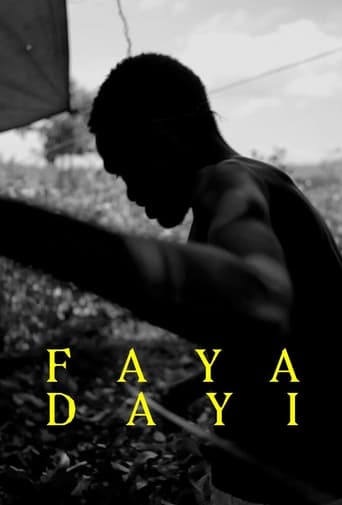
03 Sep 2021

A spiritual journey into the highlands of Harar, immersed in the rituals of khat, a leaf Sufi Muslims chewed for centuries for religious meditations – and Ethiopia’s most lucrative cash crop today. A tapestry of intimate stories offers a window into the dreams of youth under a repressive regime.
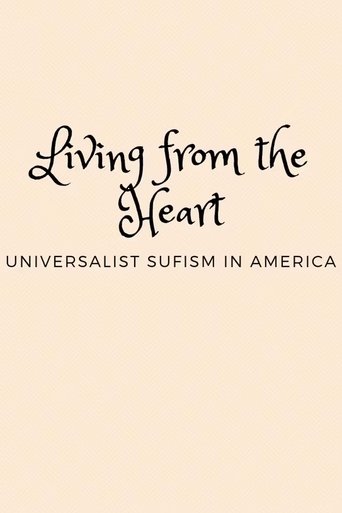
03 Sep 2018

Living from the Heart: Universalist Sufism in America, directed by Chuck Davis and Netanel Miles-Yépez, offers an introduction to the mystical path of Sufism as expressed in the universalist Sufi teachings of Hazrat Inayat Khan by contemporary Sufi teachers in America. The film contextualizes Sufism as a spiritual path of the heart, addressing the distinction between Islamic Sufism and Universalist Sufism, and introduces viewers to Sufi teachings on Love, Beauty, Music, God, and the Sufi practices of Zikr (remembrance) and Pilgrimage.
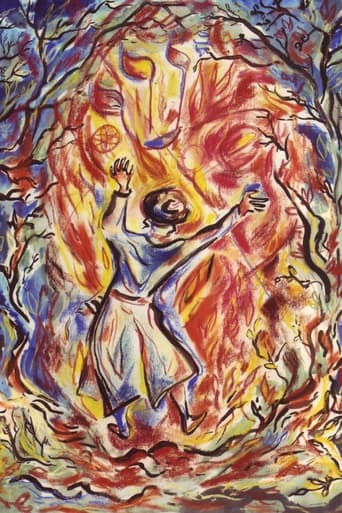
26 Jul 2012

Rabbi Israel ben Eliezer (1698-1760), known as the Ba'al Shem Tov ("Master of the Good Name"), is one of the most beloved and celebrated, yet elusive, figures in Jewish history. Today, Jews worldwide – and even non-Jews – revere him as the founder of the Hasidic movement, a 18th-century offshoot of Judaism that promotes a mystical interpretation of the Bible, and as a model of piety and spirituality. The documentary A FIRE IN THE FOREST explores the life and legacy of the Ba'al Shem Tov through interviews with religious leaders and scholars, and on-location footage. The title derives from a tale about rabbis finding a hidden fire in the forest where they could appeal to God for help and have their prayers answered.
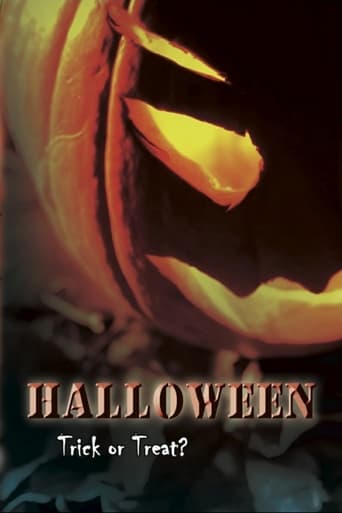
01 Jan 1991

All the seemingly innocent symbolism of Halloween – blackcats, snakes, broomsticks, bonfires, “trick or treat,” jack-o’-lanterns, apple dunking and costumes – has its roots in Sorcery, Witchcraft and Satanism. Parents’ responsibilities are challenged to decide whether to allow their children to participate in celebrations which glorify Pagan Occultism. This highly informative video traces the pagan origins and history of Halloween. The Pagan Occult calendar of Druids, Witches, Pagans and Satanists marks Halloween as one of their highest “holy days.” This video uncovers the mystic Druidic rites and ceremonies with which “Samhain” (Halloween) was originally observed 4,000 years ago. The occult rituals seen in this video are real and not re-enactments.
A documentary on sufism
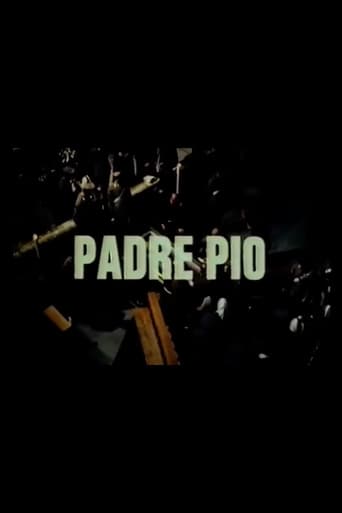
01 Nov 1968

BBC TV movie about the life of the late Francesco Forgione, widely known as Padre Pio.
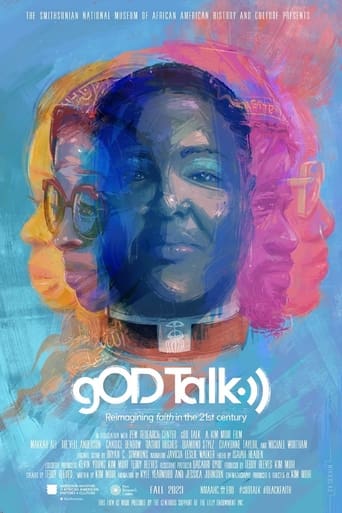
23 Oct 2023

Explores the lives of seven Black Millennials – Atheist, Buddhist, Christians, Muslim, Ifa, and Spiritualist – and the challenges and discoveries with faith and spirituality.

01 Jan 2022

The mysterious chi is presented as a force that can be produced by the master and defies all explanation.
13 Nov 2022
In Adios Amor, the discovery of lost photographs sparks the search for a hero that history forgot—Maria Moreno, a migrant mother driven to speak out by her twelve children’s hunger. Years before Cesar Chavez and Dolores Huerta launched the United Farm Workers, Maria picked up the only weapon she had—her voice—and became an outspoken leader in an era when women were relegated to the background. The first farm worker woman in America to be hired as a union organizer, Maria’s story was silenced and her legacy buried—until now.